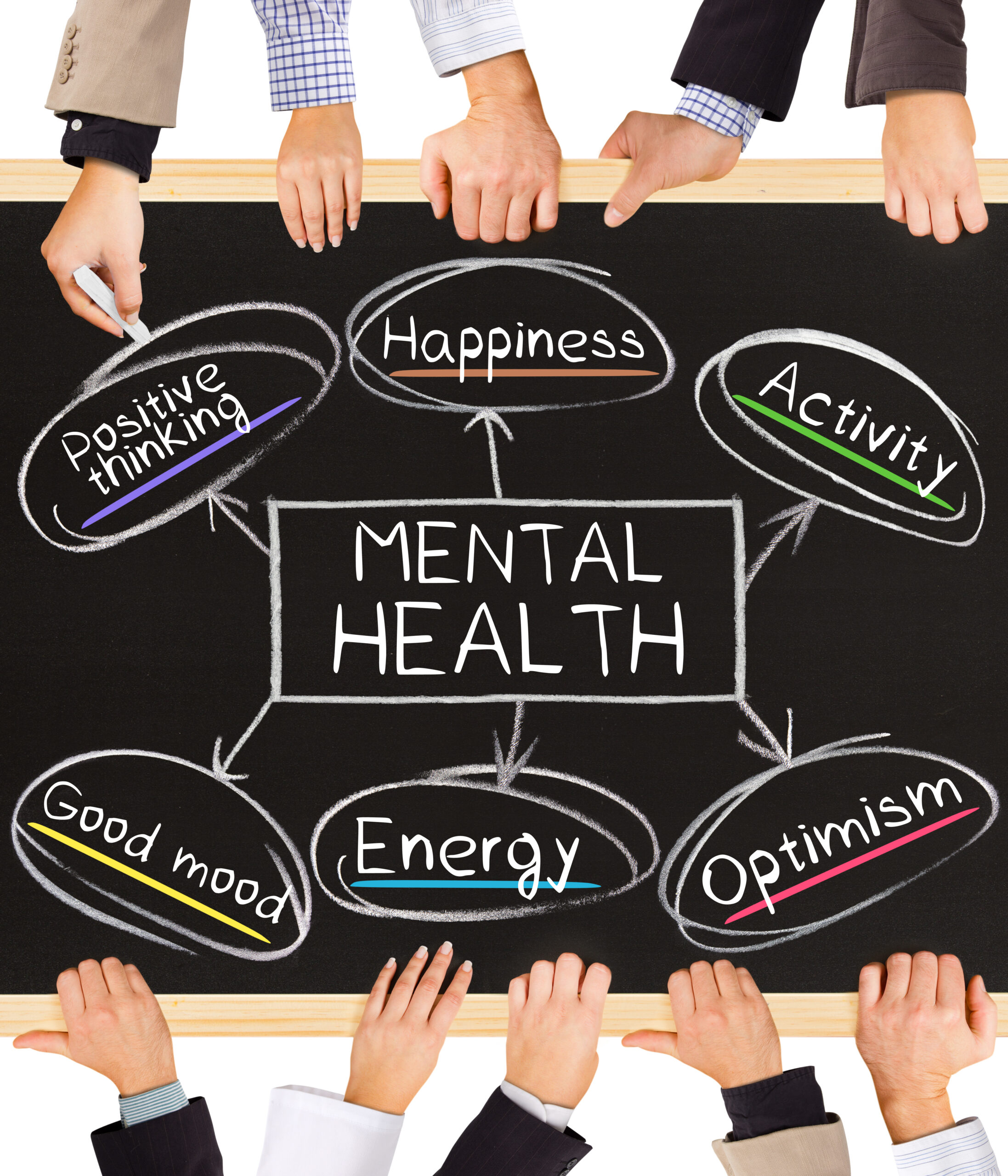A mental health risk assessment is a process of identifying and evaluating potential risks to an individual’s mental health. It is a crucial tool used by mental health professionals to identify individuals who may be at risk of harm to themselves or others. The assessment involves evaluating various factors, including the individual’s mental health history, current mental state, and any potential risk factors.
Mental health risk assessments are used to identify potential risks and prevent them from escalating. The assessment may be conducted in various settings, including hospitals, clinics, and community health centers. The goal is to identify individuals who may be at risk of harm and provide them with appropriate treatment and support. The assessment may also involve developing a risk management plan to minimize the potential risks and ensure the individual’s safety.
In conclusion, mental health risk assessments are an essential tool used by mental health professionals to identify potential risks to an individual’s mental health. The assessment involves evaluating various factors, including the individual’s mental health history, current mental state, and any potential risk factors. The goal is to identify individuals who may be at risk of harm and provide them with appropriate treatment and support.
Understanding Mental Health Risk Assessment
Mental health risk assessment is a process that involves evaluating a person’s risk of harm to themselves or others. It is a crucial component of psychiatric practice and mental health care. The primary goal of risk assessment is to identify potential risks and develop strategies to reduce or eliminate them.
Risk assessment is typically performed by mental health professionals, such as psychiatrists, psychologists, and social workers. The assessment process involves gathering information about the person’s mental health, including their history of mental illness, current symptoms, and any past incidents of self-harm or harm to others.
The assessment may also include a review of the person’s medical history, family history, and social support system. This information helps mental health professionals to develop a comprehensive understanding of the person’s mental health and identify any potential risk factors.
Once the assessment is complete, mental health professionals will use the information gathered to develop a risk management plan. This plan may include recommendations for treatment, such as medication or therapy, as well as strategies for reducing the person’s risk of harm.
It is important to note that mental health risk assessment is not a perfect science. While mental health professionals use evidence-based practices to identify potential risks, there is always a degree of uncertainty involved. It is essential to approach risk assessment with a neutral and knowledgeable perspective, and avoid making exaggerated or false claims.
Overall, mental health risk assessment is a critical component of mental health practice. By identifying potential risks and developing strategies to reduce them, mental health professionals can help to ensure the safety and well-being of their patients.
Purpose of Mental Health Risk Assessment
Mental health risk assessment is a process that involves evaluating the likelihood that an individual will harm themselves or others. It is a critical component of mental health practice that helps clinicians identify risk factors, predict potential harm, and plan for safety.
Identifying Risk Factors
The first step in conducting a mental health risk assessment is to identify the risk factors that may contribute to a person’s behavior. Risk factors can include a history of mental health conditions, substance abuse, trauma, and other life stressors. By identifying these risk factors, clinicians can develop a better understanding of the individual’s mental health and determine the level of care required.
Predicting Potential Harm
Once risk factors have been identified, clinicians can use this information to predict potential harm. This involves assessing the severity of the risk, the likelihood of harm occurring, and the potential consequences of that harm. By predicting potential harm, clinicians can develop a plan to mitigate the risk and ensure the safety of the individual and others.
Planning for Safety
The final step in a mental health risk assessment is to develop a plan for safety. This involves identifying strategies to reduce the risk of harm and ensure the individual’s safety. Strategies may include hospitalization, medication management, therapy, or other interventions. The plan should be tailored to the individual’s specific needs and should be regularly reviewed and updated as necessary.
In summary, the purpose of a mental health risk assessment is to identify risk factors, predict potential harm, and plan for safety. By conducting a thorough risk assessment, mental health professionals can develop a better understanding of the individual’s mental health and determine the level of care required to ensure their safety and the safety of others.
Components of Mental Health Risk Assessment

A mental health risk assessment is a critical process that helps mental health professionals understand the level of risk that a patient may pose to themselves or others. The assessment typically involves a combination of screening tools, professional evaluation, and consideration of the patient’s thoughts and feelings.
Screening Tools
Screening tools are used to identify potential risk factors and to assess the severity of a patient’s condition. These tools can include standardized questionnaires, checklists, and other assessment instruments. They are designed to provide a systematic way to evaluate a patient’s mental health status, and to identify any potential risk factors that may be present.
Professional Evaluation
Professional evaluation is an essential component of a mental health risk assessment. This involves a thorough evaluation of the patient’s mental health history, including any previous diagnoses or treatments. It also involves a clinical interview with the patient, in which the mental health provider can assess the patient’s current mental state and gather more information about any potential risk factors.
Patient’s Thoughts and Feelings
The patient’s thoughts and feelings are also an essential component of a mental health risk assessment. The mental health provider will work to understand the patient’s perspective, including their beliefs, values, and attitudes. This can help the provider to better understand the patient’s mental health status, and to identify any potential risk factors that may be present.
Overall, a mental health risk assessment is a complex process that requires the expertise of a trained mental health provider, such as a psychologist or psychiatrist. By using a combination of screening tools, professional evaluation, and consideration of the patient’s thoughts and feelings, mental health providers can develop a comprehensive understanding of a patient’s mental health status, and can develop an appropriate treatment plan to address any potential risk factors.
Risk Assessment in Different Populations
When it comes to mental health risk assessment, different populations require different approaches. Here, we will discuss how risk assessment is conducted in adults and youth populations.
Assessment in Adults
Risk assessment in adults involves evaluating the individual’s current mental state, history of mental health issues, and any potential risk factors that may contribute to self-harm or harm to others. The assessment may also include evaluating the individual’s social support systems, coping mechanisms, and access to mental health resources.
Some common mental health issues that may require risk assessment in adults include depression, anxiety disorders, bipolar disorder, and schizophrenia. Risk factors that may contribute to self-harm or harm to others in adults include a history of substance abuse, a history of violence, access to firearms, and a lack of social support.
Assessment in Youth
Risk assessment in youth is similar to that in adults but may require additional considerations due to the developmental stage of the individual. The assessment may include evaluating the individual’s family history of mental health issues, school performance, and social functioning. The assessment may also include evaluating the individual’s access to mental health resources and support systems.
Some common mental health issues that may require risk assessment in youth include depression, anxiety disorders, attention-deficit/hyperactivity disorder (ADHD), and conduct disorder. Risk factors that may contribute to self-harm or harm to others in youth include a history of substance abuse, a history of violence, access to firearms, and a lack of parental supervision.
In conclusion, mental health risk assessment in different populations requires a tailored approach that takes into account the unique needs and risk factors of the individual. By conducting a thorough assessment, mental health professionals can identify potential risks and develop a plan to mitigate them.
Risk Management and Treatment Options
After conducting a mental health risk assessment, the next step is to create a risk management plan that outlines strategies to mitigate identified risks. This plan forms the transition between the assessment and the treatment phase, where the focus is on reducing the potential for harm to the individual or others.
Professional Resources
Mental health professionals play a crucial role in risk management and treatment. They have access to a range of evidence-based interventions and can tailor treatment plans to meet the unique needs of each individual. Some common treatment options include:
- Medication: Medication can be used to manage symptoms of mental illness, such as anxiety and depression. It is important to work closely with a healthcare provider to find the right medication and dosage.
- Psychotherapy: Psychotherapy is a form of talk therapy that can help individuals develop coping skills, improve communication and relationships, and manage symptoms of mental illness.
- Hospitalization: In some cases, hospitalization may be necessary to ensure the safety of the individual and others. This can provide a structured and supportive environment for individuals to receive treatment.
Self-Help Resources
Self-help resources can also be beneficial for individuals managing mental health risks. These resources can provide additional support and guidance outside of professional treatment. Some examples of self-help resources include:
- Support groups: Support groups can provide a safe and supportive environment for individuals to connect with others who are experiencing similar challenges. This can help reduce feelings of isolation and provide a sense of community.
- Self-help books: Self-help books can provide individuals with strategies and tools to manage symptoms of mental illness and improve overall well-being.
- Online resources: There are many online resources available, such as apps and websites, that can provide additional support and guidance for individuals managing mental health risks.
It is important to note that self-help resources should not be used as a substitute for professional treatment. Instead, they can be used in conjunction with professional treatment to provide additional support and guidance.
Challenges in Mental Health Risk Assessment
Mental health risk assessment is a complex and challenging process that involves evaluating a patient’s current mental state, history, and other factors that may contribute to their risk of harm to themselves or others. Despite its importance, mental health risk assessment is not without its challenges. Here are some of the most common challenges:
Limitations of Predictive Value
One of the biggest challenges of mental health risk assessment is its limited predictive value. While risk assessment tools and methods have improved over the years, they are still not perfect. Research has shown that mental health professionals are not very accurate at predicting who will engage in violent behavior. This is partly because violence is a rare event, and there are many factors that can contribute to it.
Barriers to Effective Assessment

Another challenge of mental health risk assessment is the many barriers that can prevent mental health professionals from conducting effective assessments. These barriers can include lack of time, resources, and training. Mental health professionals may also face challenges in engaging patients in the assessment process, particularly if patients are resistant to treatment or have a history of noncompliance.
Other barriers to effective assessment can include:
- Stigma associated with mental health issues
- Lack of access to mental health services
- Limited availability of evidence-based assessment tools
- Limited availability of specialized training for mental health professionals
Overall, mental health risk assessment is a challenging but essential part of mental health care. Mental health professionals must be aware of the limitations and challenges of risk assessment and work to overcome them to provide the best possible care for their patients.
Legal and Ethical Considerations
When conducting a mental health risk assessment, it is important to consider legal and ethical considerations to ensure that patients’ rights are protected and that mental health professionals are held accountable for their actions.
Liability and Accountability
Mental health professionals are held to a high standard of care and are expected to provide competent and ethical treatment to their patients. Failure to meet this standard of care can result in legal liability and accountability. This can include malpractice claims, disciplinary action by licensing boards, and even criminal charges in cases of gross negligence or intentional harm.
To minimize the risk of liability and accountability, mental health professionals should ensure that they are following all relevant laws and regulations, as well as adhering to ethical guidelines set forth by professional organizations. This can include obtaining informed consent from patients, maintaining accurate and complete records, and ensuring that patient confidentiality is maintained.
Patient Rights and Confidentiality
Patients with mental illness have the same rights as any other patients, including the right to privacy and confidentiality. Mental health professionals must take steps to protect patient confidentiality, including obtaining written consent before sharing any patient information with third parties.
However, there are some situations where mental health professionals may be required by law to breach patient confidentiality, such as in cases of suspected child abuse or if a patient presents a serious danger to themselves or others. In these cases, mental health professionals must balance their duty to protect patient confidentiality with their duty to protect the safety of others.
To ensure that patient rights are protected, mental health professionals should be familiar with relevant laws and regulations, as well as ethical guidelines related to patient confidentiality. They should also ensure that patients are informed of their rights and understand the limits of confidentiality in mental health treatment.
In conclusion, legal and ethical considerations are an important part of mental health risk assessment. Mental health professionals must ensure that they are following all relevant laws and regulations, as well as adhering to ethical guidelines set forth by professional organizations. They must also take steps to protect patient confidentiality and inform patients of their rights. By doing so, mental health professionals can provide competent and ethical treatment to their patients while minimizing the risk of liability and accountability.





